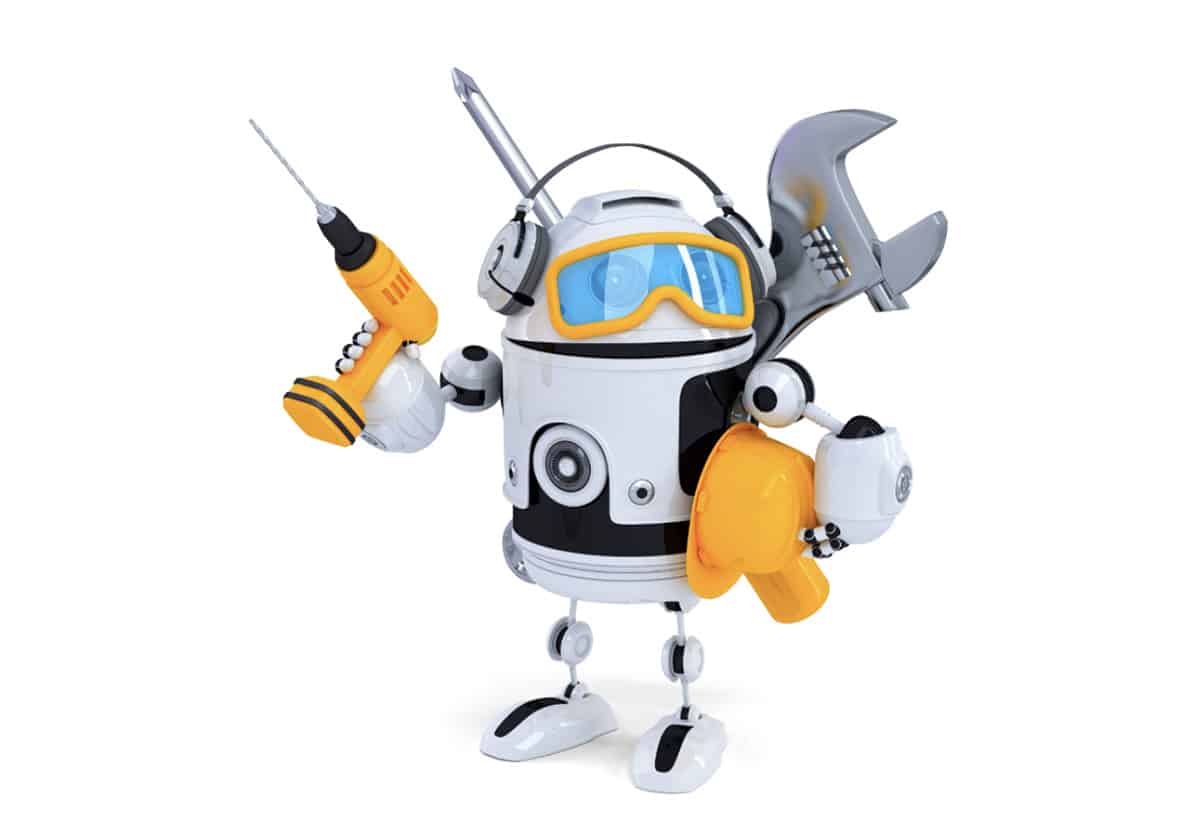AI Employees in Construction: The Future-Ready Advantage for Aussie Builders

For Brisbane and Australian businesses in the construction and trades sector, the challenges are constant and often complex. High labour costs, a shortage of skilled workers, and the need to maintain efficiency while keeping safety standards high make day-to-day operations demanding. These pressures are familiar to many business owners, but there is a growing solution that is already making an impact across the industry. Our Trade Business Solutions focus on equipping companies to adopt these changes effectively, ensuring the transition is practical and profitable. One of the most significant developments is the arrival of AI Employees in construction, offering new ways to work that are efficient, accurate, and reliable.
Imagine a job site where part of the team can operate without fatigue, complete repetitive tasks with perfect consistency, and adapt to changing project needs instantly. These AI Employees in construction are not the outdated, clumsy machines of the past. They are highly capable systems designed to understand the details of specific tasks and work seamlessly alongside human colleagues or independently when needed.
- Understanding the Need for AI Employees in Construction
- Increasing Efficiency and Accuracy
- Cost Savings and Long-Term Profitability
- Addressing the Skills Shortage
- Improving Safety on Site
- Gradual Integration for Maximum Success
- Strengthening Customer Relationships
- Compliance and Governance
- Looking Ahead
- Ready to Build Smarter, Safer, and More Profitable Projects?
Understanding the Need for AI Employees in Construction
Before exploring the benefits, it is worth considering the current state of the Australian construction and trades industries. Labour shortages are becoming more severe, pushing wages higher and stretching project timelines. Many businesses are struggling to maintain consistent output, while safety remains a constant concern. The physical nature of construction work means that fatigue, injury, and even long-term health issues can affect productivity. On top of that, the pressure to deliver projects on time and within budget is stronger than ever.
It is in this environment that AI Employees in construction are finding their place. They are designed to relieve pressure points in operations, making processes smoother, faster, and more cost-effective. Importantly, they do not replace skilled tradespeople; instead, they allow them to focus on higher-value work while routine or repetitive tasks are handled efficiently in the background.
Increasing Efficiency and Accuracy
One of the most immediate benefits of AI Employees in construction is their ability to maintain consistent productivity. They do not tire, take breaks, or get distracted, meaning they can work continuously where appropriate. In practice, this might look like automated systems managing site logistics, AI-guided bricklaying robots placing thousands of bricks with precision, or surveying drones capturing detailed site data in a fraction of the time it would take manually.
The accuracy offered by AI Employees in construction also sets them apart. For example, AI-powered surveying can produce highly detailed maps of a site within minutes, reducing errors that could lead to costly rework later in the project. When tasks require precision, removing human error from repetitive processes can significantly improve the quality and speed of delivery.
For smaller trade businesses, these same principles apply. Whether it is automated quoting, invoicing, or project scheduling, AI Employees in construction and related trades free up business owners from time-consuming administrative work, allowing them to focus on client relationships, marketing, and expansion.
Cost Savings and Long-Term Profitability
While introducing AI Employees in construction involves an initial investment, the long-term gains are considerable and often far outweigh the upfront costs. Automation provided by these systems not only reduces overtime expenses but also minimises delays that can result from human error. This is particularly important in construction, where even minor mistakes can lead to significant rework and additional expenses. By ensuring materials are used efficiently, AI helps to prevent waste, keeping projects on budget and schedules intact.
For example, a Brisbane electrical contractor using AI Employees in construction to optimise travel routes between multiple job sites can achieve savings on fuel, reduce travel time, and complete more jobs within the same day. Over the course of a year, this efficiency translates into tangible financial benefits and improved client satisfaction.
These savings accumulate quickly, allowing funds that would otherwise be lost to inefficiencies to be reinvested into valuable areas such as staff training, safety enhancements, new equipment purchases, or business expansion. In many cases, the increase in productivity and operational efficiency provided by AI Employees in construction means the investment begins to pay for itself within a surprisingly short period. For businesses aiming to remain competitive, this technology offers a sustainable path to growth and stability.
Addressing the Skills Shortage
Australia's construction and trades industries face a persistent skills gap that affects businesses of every size. Recruiting experienced workers is challenging, and even when new staff are brought on board, the training process can take months before they are fully productive. AI Employees in construction cannot completely replace the expertise of skilled tradespeople, but they can significantly reduce the strain by taking over repetitive and time-consuming tasks that do not require human judgement.
These systems can monitor critical building systems for signs of wear or inefficiency, providing alerts before small problems escalate into costly repairs. In plumbing, AI Employees in construction can identify subtle drops in water pressure that indicate a hidden leak. In carpentry, they can automatically track inventory levels, ensuring that timber, hardware, and other materials are always available when needed. By automating these checks, projects run more smoothly and delays caused by missing supplies are reduced.
The greatest benefit is that AI Employees in construction free skilled workers to focus on high-value tasks that require creativity, precision, and decision-making. Apprentices, meanwhile, can gain hands-on experience without being overwhelmed by routine inspections or data entry. This balance helps address the skills gap while maintaining high quality and safety standards on site.
Improving Safety on Site
Safety is a critical issue for every construction and trade business. The nature of the work means hazards are always present, and even minor oversights can lead to serious incidents. AI Employees in construction can act as a constant safety monitor.
By using site cameras, sensors, and real-time data analysis, AI can ensure that safety protocols are followed, identify hazards before they cause harm, and alert supervisors immediately. This could involve detecting instability in scaffolding, identifying when machinery is being operated incorrectly, or monitoring whether workers are using the correct protective equipment.
For workers, knowing that safety is being actively monitored provides reassurance. For businesses, it reduces the risk of costly downtime, compensation claims, and regulatory penalties.
Gradual Integration for Maximum Success
The most effective adoption of AI Employees in construction happens when businesses resist the urge to overhaul everything at once. Starting with a small, carefully chosen project allows teams to learn how the technology works in practice and gain confidence in using it. Selecting one or two low-risk yet high-impact tasks means that results can be measured without disrupting core operations. As the team becomes comfortable and the benefits become clear, AI Employees in construction can then be introduced to more complex areas such as predictive maintenance, project forecasting, and comprehensive cost estimation.
For example, a Brisbane builder could begin with AI-powered inventory tracking, ensuring that materials are ordered at the right time and in the correct quantities. This prevents costly project delays and reduces waste. Once this proves effective, they might expand into AI-assisted scheduling, which can automatically adjust timelines in response to weather changes, supplier delays, or other unforeseen events. Over time, AI Employees in construction can also support detailed risk assessments and quality control processes.
By following a phased approach, businesses minimise risk while building trust in the technology. Each successful step encourages further adoption, making AI Employees in construction a natural and valuable part of daily operations.
Strengthening Customer Relationships
AI is not only about operational efficiency; it plays a vital role in shaping the overall customer experience. Well-implemented AI Employees in construction can handle a wide range of communication tasks, ensuring clients are always informed without overburdening project managers or site supervisors. They can send regular progress updates that are personalised to each project, issue reminders about upcoming milestones, and provide instant answers to frequently asked questions.
When unexpected issues occur, such as weather disruptions or delays in material deliveries, AI Employees in construction can automatically adjust the project schedule and communicate these changes to the client in a clear and timely manner. This approach not only reduces uncertainty but also reassures customers that their project is being actively managed.
By keeping clients informed every step of the way, AI Employees in construction help build stronger relationships that can lead to repeat contracts and referrals. The professionalism of consistent, proactive communication also reflects positively on the company's brand. Over time, this reliability can become a competitive advantage, positioning the business as trustworthy and client-focused. For many firms, investing in AI Employees in construction to enhance communication is just as important as using them for operational tasks.
Compliance and Governance
For regulated industries, AI Employees in construction offer a practical way to manage compliance without adding unnecessary administrative pressure. By automating the recording of safety checks, inspections, and equipment maintenance logs, they ensure that nothing is missed and that every action is documented accurately. This means businesses can demonstrate adherence to regulations without scrambling for paperwork at the last minute.
A Brisbane roofing company, for example, could integrate AI Employees in construction to monitor harness use and confirm that all workers are following fall-prevention measures throughout the day. Any breach of safety protocol can trigger an immediate alert to site supervisors, allowing corrective action to be taken before a serious incident occurs.
The benefit extends beyond day-to-day monitoring. AI Employees in construction can securely store all compliance records in a centralised database, making them quick to retrieve during inspections or audits. This saves valuable time, reduces stress, and builds confidence with regulators and clients alike.
Over time, the consistent and reliable performance of AI Employees in construction in managing compliance can reduce the risk of fines, insurance claims, and reputational harm. It turns compliance from a reactive task into an integrated, proactive part of operations.
Looking Ahead
The future for AI Employees in construction is promising. As the technology becomes more accessible and affordable, its use is likely to spread across businesses of all sizes. Those who adopt it early, with a clear strategy and a willingness to integrate it thoughtfully, stand to gain a competitive advantage that goes beyond simple cost savings.
By removing inefficiencies, improving safety, and freeing skilled workers to focus on high-value tasks, AI Employees in construction offer a way forward for an industry that is facing significant challenges. For Brisbane and Australian trade businesses, the opportunity is here now. The question is whether they will take it.
Ready to Build Smarter, Safer, and More Profitable Projects?
The future of construction isn't coming — it's already here. AI Employees in Construction are giving Brisbane and Australian trade businesses the power to do more with less, win back time, and stay competitive in a market that never slows down.
Every day you delay adopting AI is another day your competitors edge ahead — cutting costs, improving safety, and delivering projects faster. The businesses that thrive in the next decade will be the ones that start making smart, strategic changes today.
At Real Cloud Solutions, we don't just talk about AI — we design, implement, and integrate AI Employees into your business so they deliver real, measurable results from day one. Whether you want to reduce admin bottlenecks, tackle the skills shortage, or improve on-site safety, we'll help you build an AI strategy that works in the real world.
Book your consultation now and discover how AI can transform your construction or trade business — before your competitors do.
